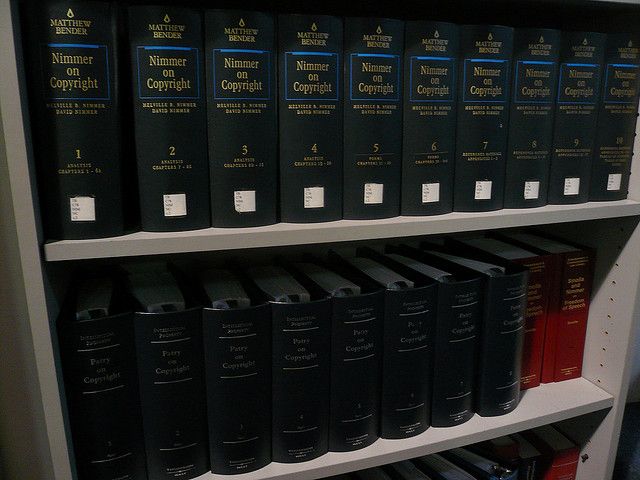Legal Topics

Copyright Infringement
The crime of copyright infringement is defined as the use, reproduction, distribution, display, or modification of a work that is protected by law as someone else's intellectual property. Copyrighted works cannot be legally distributed or altered without the permission of the copyright holder.
Every author, artist, and inventor is allowed to claim copyright over their own works in a court of law. It's even guaranteed in Article I, Section 8, Clause 8 of the US Constitution: "To promote the Progress of Science and useful Arts, by securing for limited Times to Authors and Inventors the exclusive Right to their respective Writings and Discoveries." This forms the basis for copyright and patent law in the US, making a person or business's creations exclusive and criminalizing their reproduction without the original creator's consent. This is where issues like plagiarism and theft come into play.
It's important to be sure on a given work or product how it's protected under copyright law and avoid a legal misunderstanding. Most products contain a copyright notice detailing the legal owner and a copyright symbol (©, or the letter C inside a circle). You might also have seen or heard the phrase, "All rights reserved." This means that the right to distribute, modify, or make derivative works of a given product are solely reserved to the original copyright holder.
Of course, copyright infringement is still a common crime and one that the Internet can easily facilitate. In some cases, people refuse to pay the established price of a given product or don't have legitimate access to it. It might also be that a person who infringes copyright wishes to enjoy a work--such as a work of literature--from behind the veil of anonymity. And it is a major issue in the developing world, as pirated copies of electronics and media feed a large low-income market for high-end consumer goods.
There are, of course, legal exceptions regarding copyright that you--as either a creator or a consumer--should be aware of. For example, many works exist in the public domain, which a work can enter once its copyright expires. According to the "first-sale" doctrine, if a work is legally sold or gifted, then the recipient can legally resell, rent, destroy, or give away that work as they see fit. Once sold, the copyright holder's material claim is "exhausted" and the work is freed for distribution. Another key exception is the concept of "fair use." Works can be referenced or used in part for the sake of harmless activities such as reviews and criticism, parody, academic research, or news reports.
To file for copyright or check on the ownership of a work, you can visit the US Copyright Office for registration. If you wish to report a copyright violation, you can file a claim with either the FBI or the Federal Bureau of Consumer Protection. And for the sake of protecting your work, you can consult with or hire a lawyer who specializes in copyright and patent law.
Image Credit: Michael Mandiberg on Flickr
Current Topics
1. Fiscal Agent Vs Fiscal Sponsor: What's The Real Difference?
Nonprofits and community...
2. How to Choose the Best Personal Injury Lawyer in the USA?
A personal injury lawyer...
3. How to Find the Right Attorney and Choose the Best Lawyer
Finding the right attorn...
4. Healthcare Compliance Rules Every Legal Pro Must Know
Here's the thing. Health...
5. AI ChatGPT Tools in Artificial Intelligence for Lawyers
The world of law is evolving at a pac...
6. What Are the Employment Laws Protecting Worker Rights?
In contemporary jobs, it...
7. Financial Resilience Explained for Stability & Success
Money is so cumulative i...
8. What Are Gig Economy Jobs? Legal Rights You Must Know
The way people work has changed drama...
9. Rights & Mediator's Role in Pregnancy Child Support 2025
The first idea that will come to the ...
10. Digital Courtrooms: VR Evidence & Remote Trials in 2025
Once upon a time, courtrooms were all...
